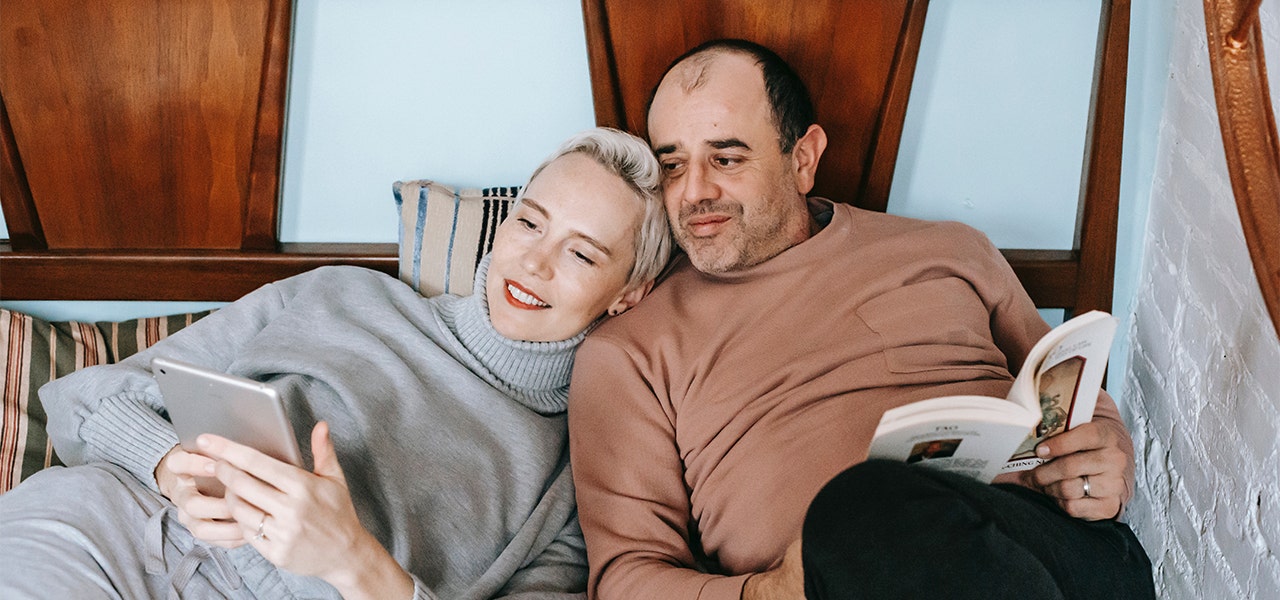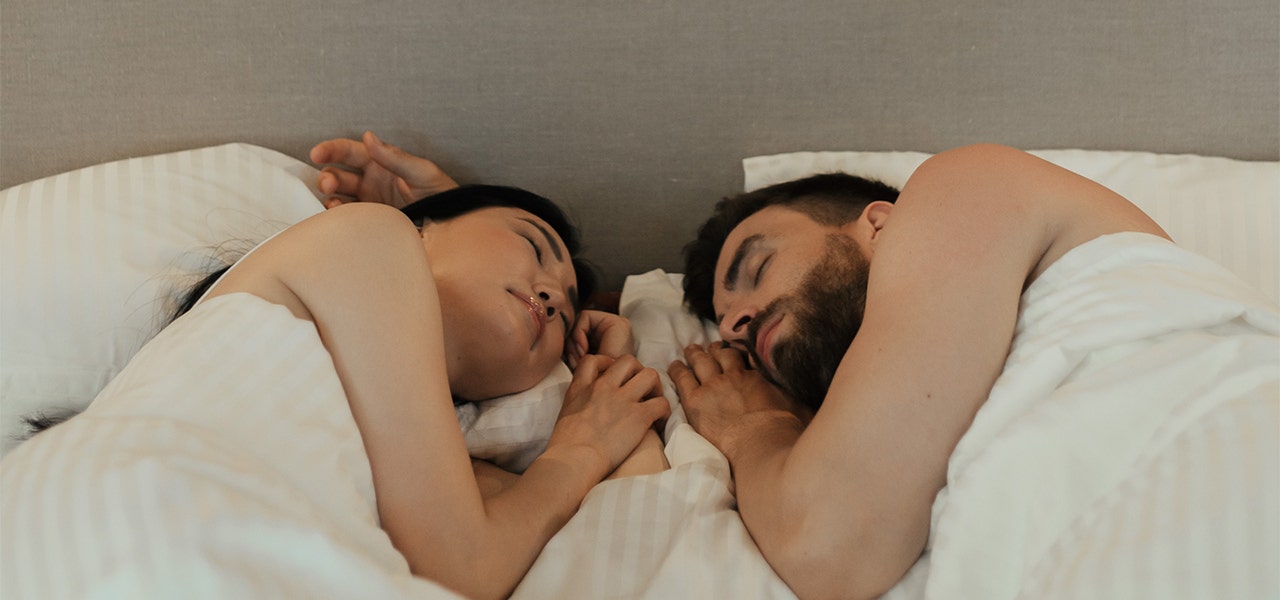One of the most loving things my husband has ever done for me in the 26 years we’ve been married was to sleep somewhere else.
It’s true.
Several times over the years he has decided to sleep somewhere else to better protect my sleep. This isn’t our standard and we’ll go years without separate sleep spaces but then he moves for as many nights as necessary when he’s sick and congestion is making him sound like a herd of elephants is filling our room as he snores or I start asking if we need to go to the ER so he doesn’t lose a lung in a coughing fit.
To me, that’s true love right there.
I do miss him when he’s gone but I don’t miss the elephants or the hacking and, let’s face it, most of us are more loving and caring when we’re well rested. Me getting a good night’s sleep helps me be a better partner and parent.
It’s Not Just About Sleep Quality Either!


Even when we are in the same room and bed, a few times a week I go to bed without my husband. Not because I want to go to bed without him but because he’s an introvert and sometimes likes to have some space to himself when the house is quiet. He’s an avid reader but finds reading with distractions nearly impossible so in our family of 10, there’s no better time for him to enjoy a book than when everyone else in the house is tucked in. It's an important time for him, an energy-giving time that helps him be calm and centered and frankly, a better version of himself.
But shouldn’t couples sleep in the same space? Shouldn’t couples go to bed at the same time? Isn’t that important for connection and intimacy? Don’t they need that time together at the end of the day?
Eh… it may not be as important as you think. While there is some evidence that it may be true for some, there’s also evidence that sometimes that really isn’t the case (see Marital quality and the marital bed: Examining the covariation between relationship quality and sleep and Marital Happiness and Sleep Disturbances in a Multi-Ethnic Sample of Middle-Aged Women).
Like Relationships Sleep Is Not One-Size-Fits-All


As a relationship coach, I regularly tell clients that there’s no one-size-fits-all way of relating that is meaningful and right for everyone in every relationship. There is all kinds of evidence about what tends to support healthy connection and longevity in a relationship but within the context of any specific individuals and relationship, that doesn’t always look the same and sometimes it doesn’t support the relationship at all. Many of us “do it all wrong” and find that works for us.
Because there’s no one-size fits all when it comes to relationship practices. Or sleep!
In a self-reported poll, couples that sleep in the same room and bed report higher sex and relationship satisfaction. While couples that sleep in separate spaces report improved sleep quality and lower stress levels.
There’s no doubt that’s true for many couples but for some, improved sleep quality and lower stress levels would also translate into higher sex and relationship satisfaction. Certainly communication and connection are improved when we’re rested and less stressed! In fact, conflict would likely be lower and when it does happen, better managed as studies show that lack of sleep intensifies angry feelings. Meaning that separate sleep spaces may in fact improve some relationships.
If having different bedtimes or separate sleep spaces is what a couple needs to do, that’s what a couple should do.
Not Surprisingly, Communication Is Key


With the couples we work with there’s always one clear factor that makes a difference: communication.
Differing sleep needs can significantly impact what works best for a couple. Circadian rhythms can be influenced by routine and adjusted some with practice but sleep chronotypes are influenced by genetics, age and hormones. Additionally, some feel deeply connected and secure sleeping with someone and going to bed at the same time while others find having another person present distracting and overstimulating, making it difficult for them to fully rest with a sleep partner.
Communicating about preferences, what works, and what concerns each has regarding sleep choices in the relationship holds space for working together to find solutions that address those differences without triggering feelings of rejection or distance. Regular check-ins about what is and isn’t working, what each may be missing, and how the partners are feeling can lead to problem solving that continues to foster intimacy and connection regardless of where each is sleeping.
There have been many reasons why my husband and I have had separate sleep spaces and different bed times over the years. From work schedules to illness to pregnancy to insomnia to needing personal space and more. Adjusting as needed and letting go of rigid expectations has been a part of deepening our connection and plain ol’ enjoying each other more.
Wherever you and your partner sleep and whether or not you have a joint bedtime, at the end of the day, if it works for you and your partner, it’s a healthy choice.
At Naturepedic, we know comfort matters – and just like your sleep needs may vary, your comfort needs can, too! If you and your partner have different mattress firmness preferences, we can help. Check out our customizable EOS Organic Mattress that lets you select firmness levels on each side of the bed!
 BABY
BABY  KIDS
KIDS  ADULT
ADULT  LEARN
LEARN  STORES
STORES 
